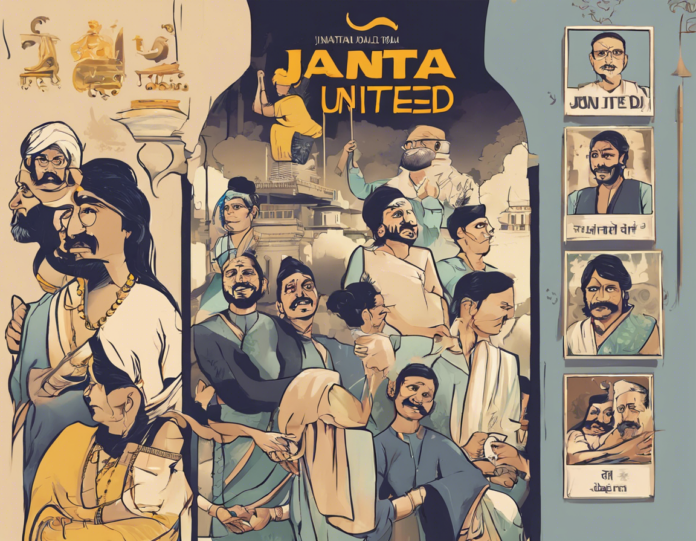The Janata Dal (United), popularly known as JD(U), is a prominent political party in India, particularly in the state of Bihar. Formed through the merger of various factions of the erstwhile Janata Dal in 2003, JD(U) has played a significant role in shaping the political landscape of the country. This article will delve into the ideology, history, leadership, electoral performance, and impact of the Janata Dal (United).
Origins and Ideology
The Janata Dal (United) was formed on the principles of social justice, secularism, and democratic socialism. It draws inspiration from the ideologies of Jayaprakash Narayan and Ram Manohar Lohia, who were stalwarts of the socialist movement in India. The party aims to uplift the marginalized sections of society, promote equality, and ensure inclusive development.
Leadership and Structure
The party was founded by Sharad Yadav, George Fernandes, and Nitish Kumar, with Nitish Kumar emerging as its most prominent leader. Nitish Kumar, a seasoned politician and former Chief Minister of Bihar, has been instrumental in steering the party to electoral victories and forming alliances with other political parties.
The JD(U) operates on a federal structure, with decision-making powers distributed among various levels of leadership. The party has a strong presence in Bihar, where it has a well-established organizational network comprising grassroots workers, district-level leaders, and state-level functionaries.
Electoral Performance
Over the years, the Janata Dal (United) has emerged as a significant player in Bihar politics. The party has frequently alternated in power with other political parties in the state, showcasing its electoral strength. It has contested elections both on its own and as part of alliances, including the National Democratic Alliance (NDA).
Coalition Politics
One of the defining features of the Janata Dal (United) has been its ability to engage in coalition politics effectively. The party has been a key partner in the NDA at the national level, aligning itself with the Bharatiya Janata Party (BJP) and other regional parties. This coalition has proved to be successful in several state elections, consolidating the JD(U)’s position as a formidable force.
Governance and Policies
During its tenure in power, particularly under the leadership of Nitish Kumar, the Janata Dal (United) has focused on good governance, developmental initiatives, and law and order. The party has implemented several welfare schemes targeting education, healthcare, infrastructure, and agriculture, aimed at improving the quality of life for the people of Bihar.
Impact and Challenges
The Janata Dal (United) has left a significant impact on Bihar’s socio-political landscape. Its emphasis on social justice, inclusive growth, and secularism has resonated with a diverse section of the population. However, the party also faces challenges such as internal dissensions, opposition from rival parties, and electoral dynamics that continue to shape its trajectory.
Frequently Asked Questions (FAQs)
Q1: What are the core principles of the Janata Dal (United)?
A1: The Janata Dal (United) is founded on the principles of social justice, secularism, and democratic socialism.
Q2: Who are the key leaders of the JD(U)?
A2: Prominent leaders of the JD(U) include Nitish Kumar, Sharad Yadav, and George Fernandes.
Q3: What is the JD(U)’s stance on coalition politics?
A3: The JD(U) actively engages in coalition politics and has been part of alliances like the National Democratic Alliance (NDA).
Q4: What are some of the key welfare schemes implemented by the JD(U) in Bihar?
A4: The JD(U) government in Bihar has focused on education, healthcare, infrastructure, and agriculture through various welfare schemes.
Q5: What challenges does the Janata Dal (United) face in contemporary politics?
A5: The JD(U) faces challenges such as internal dissensions, opposition from rival parties, and complex electoral dynamics.
In conclusion, the Janata Dal (United) has emerged as a significant political force, particularly in Bihar, with a strong focus on social justice and inclusive development. Its coalition politics, governance initiatives, and leadership have contributed to its standing in the Indian political landscape. As the party navigates through various challenges, its commitment to its founding principles will be crucial in shaping its future trajectory.



